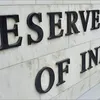RBI creates separate liquidity window of 15,000Cr for hotel, tourism, and aviation sector
The window will remain open till March 31, 2022, with tenors of up to three years at the repo rate, RBI Governor Shaktikanta Das said after a meeting of the monetary policy committee.
The Reserve Bank of India (RBI) on Friday announced a separate liquidity window of Rs 15,000 crore to mitigate the adverse impact of the second COVID-19 wave on certain contact-intensive sectors.
The window will remain open till March 31, 2022, with tenors of up to three years at the repo rate, RBI Governor Shaktikanta Das on Friday said in Mumbai after a meeting of the monetary policy committee.
Announcing the on-tap Liquidity Window for Contact-intensive Sectors, he said that banks can provide support to hotels and restaurants, tourism, aviation support services, and other services under this programme.

Image source: Shutterstock
Under the scheme, banks can provide fresh lending support to hotels and restaurants; tourism – travel agents, tour operators, and adventure/heritage facilities; aviation ancillary services – ground handling and supply chain; and other services that include private bus operators, car repair services, rent-a-car service providers, event/conference organisers, spa clinics, and beauty parlours/salons.
"By way of an incentive, banks will be permitted to park their surplus liquidity up to the size of the loan book created under this scheme with the Reserve Bank under the reverse repo window at a rate, which is 25 bps lower than the repo rate, or termed in a different way, 40 bps higher than the reverse repo rate,'' Das said.
Further, an additional Rs 16,000 crore funding has been earmarked for SIDBI for lending to MSMEs, directly or indirectly over and above the quantum of Rs 50,000 crore, which was set aside for government financial institutions in the April policy.
To provide further relief to the businesses hit by COVID 2.0, the newly announced restructuring window has been extended for all entities, with outstanding credit of Rs 50 crore.
RBI had slashed the repo rate by a total of 115 basis points (bps) since March 2020, to soften the blow from the pandemic.
The RBI governor said unlike the first COVID-19 wave — which brought the economy to an abrupt standstill under a nationwide lockdown — the impact of the second wave on economic activity is expected to be relatively contained with restrictions on mobility being regionalised and nuanced.
"In the year gone by, the Reserve Bank has engaged in safeguarding the economy and the financial system from the ravages of the pandemic.
"We have been on continuous vigil through the first wave; the lull between the waves; and now the second wave," he said, adding, "maintaining financial stability and congenial financing conditions for all stakeholders is a commitment that we have adhered to assiduously."
(With inputs from PTI)
Edited by Suman Singh








